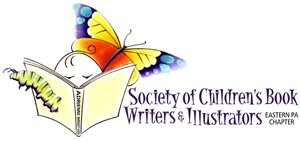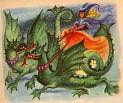 I’ve interviewed my new friend, David E. Goldschmidt, Ph.D., who is the editor-extraordinaire behind G-revisions: Writing & Editing Services. I stumbled upon his services in the SCBWI classifieds. I needed a story critiqued and line-edited before submitting it to the Cheerios Spoonfuls of Stories contest. The deadline lurked. But Dave halted my panic. He turned the story around with days to spare. With precise edits and wise suggestions for tension-building.
I’ve interviewed my new friend, David E. Goldschmidt, Ph.D., who is the editor-extraordinaire behind G-revisions: Writing & Editing Services. I stumbled upon his services in the SCBWI classifieds. I needed a story critiqued and line-edited before submitting it to the Cheerios Spoonfuls of Stories contest. The deadline lurked. But Dave halted my panic. He turned the story around with days to spare. With precise edits and wise suggestions for tension-building.GwG: What has your trudge to publication been like?
Dave: My trudge (nice word choice!) to publication has been both rewarding and frustrating. I've yet to publish my own children's book, but have found success in the non-fiction markets. It’s often easier to break into print this way. The most frustrating part of the magazine publishing industry is the unpublished sale. I've sold a few stories, but they've yet to be published! The publishing world on the Web is a nice avenue to explore.
GwG: Do you recommend that aspiring authors obtain further education like you did at the Institute of Children's Literature (ICL)? I've heard cases for both yes and no, that the practice of writing is an apprenticeship in itself.
Dave: The cost of the ICL program is relatively cheap, even for the "starving artist," so I think aspiring writers should try the program. The ICL manual and assignments thoroughly cover the basics of writing for children. And in a very hands-on way. Many feel that the program is geared toward the magazine market. I agree, and would say that most of your writing assignments can be revised and submitted for publication, which might make the ICL program pay for itself. ICL is also nice on a query or cover letter. The most beneficial aspect of the ICL course was the personal feedback from my instructor, Helen Hoover, who answered my questions and identified improvement areas. It was not a one-size-fits-all approach.
GwG: You have a strong background in technical applications. How did you become interested in children's writing? How does your background strengthen or challenge your writing?
Dave: I was always an avid reader, starting my first fantasy novel when I was 15. I might never get back and finish this story. As is often the case with a first manuscript, I wrote myself into a corner. But I consider it a practice run!
I have a Ph.D. in Computer Science and currently teach at The College of Saint Rose in Albany, NY. This gives me a leg up on spelling, grammar, and other writing mechanics. Unlike many writers, I write sparsely. Most writers begin by writing and writing and writing, then revising down to the core. I tend to do the opposite.
 GwG: Which are your favorite writing conferences? And how should aspiring authors best take advantage of them?
GwG: Which are your favorite writing conferences? And how should aspiring authors best take advantage of them?Dave: Certainly the regional SCBWI conferences are my favorites. They are more informal and inviting. My favorite is the weekend-long Pocono Mountains Retreat held every spring. The one-day conferences are nice, but they're over too quickly!
My advice to aspiring authors attending such conferences is to take notes, meet everyone you can, and showcase your writing through paid critiques. A key advantage to attending is talking with editors and agents. Most of these folks, even in closed houses, open their doors to manuscript submissions for conference attendees. At the same time, be courteous and professional. I think the biggest mistake I've seen attendees do is over-talk their story ideas with editors. When I attended a recent Pocono retreat, I sat with Cheryl Klein, Senior Editor at Arthur A. Levine Books. Rather than bore her with story ideas, I talked with her about day-to-day things. Out of this came a story idea that she liked!
GwG: As a freelance editor, what are the most common mistakes you see regarding theme, structure, or marketability?
Dave: I find that writers fear using "said" and "asked". There’s no need for other dialogue tags. And often writers wait until the end of a paragraph to identify who's talking, as in:
YIKES: "She did what? How could she do that, after all we've been through? That's it! My friendship with her is over," Sarah yelled.
BETTER: "She did what?" said Sarah. "How could she do that, after all we've been through? That's it! My friendship with her is over."
 GwG: How do you polish your work? Do you belong to a critique group, or have a mentor in the field?
GwG: How do you polish your work? Do you belong to a critique group, or have a mentor in the field?
Dave: I do belong to a critique group. We met at a Highlights Foundation Workshop in 2004 and have stayed together online since then. Aside from critiquing, we keep current with each other and meet in person a few times per year. Critiques are invaluable. I also find it helpful to put my manuscript aside and return to it a week later. And reading aloud during the editing process is ideal for catching awkward or incorrect usage.
BETTER: "She did what?" said Sarah. "How could she do that, after all we've been through? That's it! My friendship with her is over."
 GwG: How do you polish your work? Do you belong to a critique group, or have a mentor in the field?
GwG: How do you polish your work? Do you belong to a critique group, or have a mentor in the field?Dave: I do belong to a critique group. We met at a Highlights Foundation Workshop in 2004 and have stayed together online since then. Aside from critiquing, we keep current with each other and meet in person a few times per year. Critiques are invaluable. I also find it helpful to put my manuscript aside and return to it a week later. And reading aloud during the editing process is ideal for catching awkward or incorrect usage.
Meeting Kim Griswell and Marileta Robinson at Highlights in 2004, and staying in touch with them since, has been inspirational. And, of course, I have my favorite authors, including Ursula Le Guin, Lois Lowry, Donna Jo Napoli, Laurie Halse Anderson, Blue Balliett, Jane Yolen, Frank McCourt, Kate DiCamillo, Bruce Coville, Nancy Farmer, as well as classic authors like Ernest Hemingway, John Knowles, Jules Verne, J.R.R. Tolkien,
 and Ayn Rand, just to name a few! I also have to mention my favorite book on writing, Strunk & White’s The Elements of Style.
and Ayn Rand, just to name a few! I also have to mention my favorite book on writing, Strunk & White’s The Elements of Style.GwG: What are you working on now?
Dave: My claim to fame will be a MG/YA story set in the world of Norse Mythology. As for the details, those are under lock and key!
So many thanks, Dave, and happy trudging!

T-minus 9 days to complete the Task-That-Must-Be-Conquered.
0 Comments on Freelance and Fancy Free as of 8/20/2008 11:36:00 AM
Add a Comment



